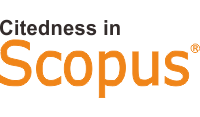Bridging Regulatory Diversity: Halal Certification Frameworks in Indonesia, Malaysia, and Singapore and the Road to ASEAN Harmonisation
DOI:
https://doi.org/10.46870/milkiyah.v4i1.1463Keywords:
ASEAN, Halal Certification, Harmonisation, LawAbstract
With the growing significance of halal product assurance in ASEAN, the demand for regulatory harmonisation is alarming with the phenomenon of globalization. This study attempts to analyse and compare the regulatory frameworks of halal product assurance from countries in ASEAN to find similarities and differences and aspects that require development. In this study, a comparative method was used to compare the legal and policies of the halal product assurance in Indonesia, Malaysia and Singapore. This study demonstrates that mandatory certification under Indonesian JPH law does ensure comprehensive regulation but impedes several industry sizes as well as intricacies during implementation. In Malaysia, JAKIM has established a known voluntary scheme all over the globe. Its governance system is excellent and has enabled Malaysia to lead the halal market globally. On the other hand, Singapore's model is highly regulated and overseen by MUIS. It serves the global economy while ensuring strict halal standards. The differences in regulations should be harmonised as they could otherwise translate into trade barriers besides affecting consumer confidence. A more integrated, competitive, and visible halal industry in the ASEAN global market can be achieved by harmonising such differences through policy alignments, coordination among agencies, and technological utilisation
References
Abimanyu, A., & Faiz, I. A. (2023). ASEAN Halal Markets Analysis: Regulatory and Harmonization Challenges. Global Review of Islamic Economics and Business, 11(1). https://doi.org/10.14421/grieb.2023.111-02.
Abimanyu, A., Imansyah, H., & Al Tamimi, R. A. (2024). Indonesia’s Intra-Trade of Halal Food Products with ASEAN. Journal of Southeast Asian Economies, 41(1), 47 – 69. https://doi.org/10.1355/ae41-1d.
Ahamat, H., & Rahman, N. A. (2018). Halal Food, Market Access and Exception to WTO Law: New Aspects Learned from Indonesia — Chicken Products. Asian Journal of WTO and International Health Law and Policy, 13(2), 355 – 373.
Akbar, J., Gul, M., Jahangir, M., Adnan, M., Saud, S., Hassan, S., Nawaz, T., & Fahad, S. (2023). Global Trends in Halal Food Standards: A Review. Foods, 12(23). https://doi.org/10.3390/foods12234200.
Ali, Z. (2021). Metode Penelitian Hukum. Sinar Grafika. Mataram University Press.
Alim, M. N., Yuliana, R., Sayidah, N., Alyana, N., Putri Nadhila, J. M., & Rahma, Q. L. (2024). The contributions and challenges of higher education on the value chain of halal certification. BIO Web of Conferences, 146. https://doi.org/10.1051/bioconf/202414601001.
Al-Teinaz, Y. R., & Al-Mazeedi, H. M. M. (2020). Halal certification and international halal standards. In The Halal Food Handbook. Wiley Blackwell. https://doi.org/10.1002/9781118823026.ch15.
Asa, R. S. (2019). An overview of the developments of Halal certification laws in Malaysia, Singapore, Brunei and Indonesia. Jurnal Syariah, 27(1), 173-200. https://doi.org/10.22452/js.vol27no1.7.
Badruldin, B., Mohamed, Z., Sharifuddin, J., Rezai, G., Abdullah, A. M., Latif, I. A., & Mohayidin, M. G. (2012). Clients’ perception towards JAKIM service quality in Halal certification. Journal of Islamic Marketing, 3(1), 59 – 71. https://doi.org/10.1108/17590831211206590.
Bahagian Pengurusan Halal JAKIM. (2020). Halal Malaysia Portal. Jabatan Kemajuan Islam Malaysia. https://myehalal.halal.gov.my/portal-halal/v1/index.php.
BPJPH. (2022). Regulasi Badan Penyelenggara Jaminan Produk Halal. Badan Penyelenggara Jaminan Produk Halal. https://bpjph.halal.go.id/.
Bux, C., Varese, E., Amicarelli, V., & Lombardi, M. (2022). Halal Food Sustainability between Certification and Blockchain: A Review. Sustainability, 14(4), 2152. https://doi.org/10.3390/su14042152.
Dinar Standard. (2023). State of the Global Islamic Economy Report 2023/2024. https://cdn.salaamgateway.com/reports/pdf/5d80cd862c4ac9b62237d21da976647a9b466c6f.pdf.
Effendi, B., Fikri, M. K., Adinugraha, H. H., Susminingsih, & Furqon, A. (2024). Preparation for the Implementation of Mandatory Halal Regulations for Food and Beverage Products in Indonesia. Revista Juridica, 1(77), 341 – 365. https://doi.org/10.26668/revistajur.2316-753X.v1i77.6823.
Fathoni, M. A., Priyatno, P. D., Faizi, Wiryanto, F. S., Rachbini, W., & Suryani. (2025). Unlocking barriers and strategies of halal certification for micro and small enterprises in Indonesia: Analytic network process approach. Problems and Perspectives in Management, 23(1), 169 – 180. https://doi.org/10.21511/ppm.23(1).2025.13.
Fischer, J. (2015). Islam, Standards, and Technoscience: In Global Halal Zones (1st ed.). Routledge. https://doi.org/10.4324/9781315667065.
Fischer, J. (2018). Talent, teams and training: Managing muslim markets in Malaysia and singapore. In The Political Economy of Brain Drain and Talent Capture: Evidence from Malaysia and Singapore. Taylor and Francis. https://doi.org/10.4324/9780429430503-7.
Hamanaka, S., & Jusoh, S. (2018). Understanding the ASEAN way of regional qualification governance: The case of mutual recognition agreements in the professional service sector. Regulation and Governance, 12(4), 486 – 504. https://doi.org/10.1111/rego.12210.
Hasan, M. R., & Abd Latif, M. S. (2024). Towards a Holistic Halal Certification Self-Declare System: An Analysis of Maqasid al-Sharīʿah-Based Approaches in Indonesia and Malaysia. Mazahib, 23(1), 41–78. https://doi.org/10.21093/mj.v23i1.6529.
Hasanuddin, M., Yusup, D. K., Rosadi, A., Fathonih, Ah., & Mustofa. (2024). The Importance of Green Halal Industry in Sustainable Sharia Economics Development in Indonesia. Pakistan Journal of Life and Social Sciences, 22(2), 12603 – 12616. https://doi.org/10.57239/PJLSS-2024-22.2.00899.
Hashim, S. F. M., Salim, J., Noah, S. A., & Mustapha, W. A. W. (2017). A framework for tracing the flavouring information to accelerate halal certification. Journal of Telecommunication, Electronic and Computer Engineering, 9(2–9), 147 – 153.
Huda, I. A. S., Saadah, M., Sugiarto, A., Bin Ibrahim, M. H., Prasad, R. R., Putra, A. K., & Budianto, A. (2024). Revealing Halal Certification Oversight Gaps for MSEs through ArcGIS Dashboard Integration. Indonesian Journal of Halal Research, 6(2), 58 – 69. https://doi.org/10.15575/ijhar.v6i2.33308.
Iswanto, A., & Koeswinarno. (2020). Divergent interpretations and inter-organizational relations of halal product guarantee policy in Indonesia. Jurnal Ilmu Sosial Dan Ilmu Politik, 24(1), 67 – 79. https://doi.org/10.22146/JSP.54282.
Jalaluddin, J., Azhar, A., Muzainah, G., Aseri, M., & Al Amruzi, M. F. (2024). Proliferation of Halal Regulation and Enforcement in Indonesia and Malaysia. Journal of Human Rights, Culture and Legal System, 4(1), 194–208. https://doi.org/10.53955/jhcls.v4i1.126.
Jamaludin, N. F., & Sugawara, K. (2022). Halal logistics certification and regulations in Japan. In Halal Logistics and Supply Chain Management: Recent Trends and Issues. Taylor and Francis. https://doi.org/10.4324/9781003223719-20.
Johan, E., & Plana-Casado, M. J. (2023). Harmonizing Halal in ASEAN: Analysis of Halal Food Guidelines under the ASEAN Way Approach. Journal of ASEAN Studies, 11(1), 43 – 67. https://doi.org/10.21512/jas.v11i1.9682.
Kadir, M. H. A., Rasi, R. Z. R. M., Omar, S. S., & Manap, Z. I. A. (2016). Halal Supply Chain Management Streamlined Practices: Issues and Challenges. IOP Conference Series: Materials Science and Engineering, 160(1), 1-8. https://doi.org/10.1088/1757-899X/160/1/012070.
Kharrazi, M., Fautanu, I., Suganda, A., & Maryano. (2024). Legal Analysis of MUI’s Authority in Providing Halal Label Guarantees After the Issuance of Law Number 33 of 2014 Concerning Guarantees for Halal Products. Revista de Gestao Social e Ambiental, 18(9). https://doi.org/10.24857/rgsa.v18n9-057
Kifli, S. N. (2023). Halal Certification in Brunei Darussalam: Bureaucratisation in Everyday Life. Asia in Transition, 20, 35 – 49. https://doi.org/10.1007/978-981-19-6059-8_3.
Krisharyanto, E., Retnowati, E., & Hastuti, N. T. (2019). Regulation and provisions for supervision of halal products in Indonesia. Journal of Legal, Ethical and Regulatory Issues, 22(1).
Latif, M. A. (2020). Halal international standards and certification. In The Halal Food Handbook. Wiley Blackwell. https://doi.org/10.1002/9781118823026.ch14.
Limenta, M., Edis, B. M., & Fernando, O. (2018). Disabling Labelling in Indonesia: Invoking WTO Laws in the Wake of Halal Policy Objectives. World Trade Review, 17(3), 451 – 476. https://doi.org/10.1017/S1474745617000167.
Mangruwa, R. D., Yunani, A., Nugraha, M. F., Tuzzahra, F., Syadira, F. N., & Foon, N. H. (2024). Mapping Research Blockchain Trends on Halal Supply Chain in Indonesia: a Bibliometric Analysis. 2024 International Conference on Intelligent Cybernetics Technology & Applications (ICICyTA), 1199–1203. https://doi.org/10.1109/ICICYTA64807.2024.10913468.
Muhammad, M. A., Elistina, A. B., & Ahmad, S. (2020). The challenges faced by halal certification authorities in managing the halal certification process in Malaysia. Food Research, 4(S1), 170–178. https://doi.org/10.26656/fr.2017.4(S1).S17
Nazim, N. A. M., & Yusof, S. M. (2023). Halal Legislation Enforcement of Food Premises in Malaysia. Global Journal Al-Thaqafah, Special Issue, 151 – 164. https://doi.org/10.7187/GJATSI072023-12.
Nordin, N., Noor, N. L. M., & Samicho, Z. (2012). Applying the work systems method to investigate the operational efficiency of the halal certification system. Innovation Vision 2020: Sustainable Growth, Entrepreneurship, and Economic Development - Proceedings of the 19th International Business Information Management Association Conference, 1, 482 – 494.
Nurcahaya, Akbarizan, Erman, Yasnel, & Lestari, F. (2021). Benchmarking of Supply Chain Strategy on Halal Certification Bodies. In A. S.I., C. O., D. C., & F. D.D. (Eds.), Lecture Notes in Engineering and Computer Science (Vol. 2243, pp. 208 – 213).
Osman, O. A. (2023). Kosher and Halal Food Dissimilarities and Challenges in Accessing International Markets. In Halal and Kosher Food: Integration of Quality and Safety for Global Market Trends. Springer International Publishing. https://doi.org/10.1007/978-3-031-41459-6_5.
Othman, B., Shaarani, S. M., & Bahron, A. (2016a). Evaluation of knowledge, halal quality assurance practices and commitment among food industries in Malaysia. British Food Journal, 118(8), 2033 – 2052. https://doi.org/10.1108/BFJ-12-2015-0496.
Othman, B., Shaarani, S. Md., & Bahron, A. (2016b). The potential of ASEAN in halal certification implementation: A review. Pertanika Journal of Social Sciences and Humanities, 24(1), 1 – 24..
Pauzi, N., Man, S., Nawawi, M. S. A. M., & Abu-Hussin, M. F. (2019). Ethanol standard in halal dietary product among Southeast Asian halal governing bodies. Trends in Food Science and Technology, 86, 375 – 380. https://doi.org/10.1016/j.tifs.2019.02.042.
Prathama, M., Baihaqi, I., & Rakhmawati, N. A. (2024). A Conceptual Framework of Halal Traceability System in Indonesia Cosmetics Supply Chain. Digest of Technical Papers - IEEE International Conference on Consumer Electronics, 636 – 641. https://doi.org/10.1109/ISCT62336.2024.10791155.
Putra, H. M., Novita, D., Thoriq, A. M., Adnan, N. I. Muhd., & Sulaiman, A. (2024). Building Culture of Islamic Laws: Synergy of Pentahelix and Circle-Equity in Halal Certification. Petita: Jurnal Kajian Ilmu Hukum Dan Syariah, 9(2), 478 – 495. https://doi.org/10.22373/petita.v9i2.305.
Ramli, N., Amin, N., Zawawi, M., & Aziz, N. A. (2017). Healthcare services: Halal pharmaceutical in Malaysia, issues and challenges. Malaysian Journal of Consumer and Family Economics, 20(S1), 101 – 111.
Ridho, A. (2025). Integrating Artificial Intelligence and Blockchain to Improve the Accuracy of Halal Certification. Journal of Halal Review, 1(1), 12-22. https://doi.org/10.70764/gdpu-jhr.2025.1(1)-02.
Ridwan, A. H., Hasanuddin, M., & Fatahillah, I. A. (2020). Authorization of halal certification in Indonesia, Malaysia and Singapore. International Journal of Psychosocial Rehabilitation, 24(8), 7992-8011.
Rofiah, K., Safira, M. E., & Rosele, M. I. (2024). The Effectiveness of Accelerating Halal Product Certification: Regulations and Companions. Journal of Human Rights, Culture and Legal System, 4(2), 449 – 476. https://doi.org/10.53955/jhcls.v4i2.203.
Saat, N. (2018). Fulfilling the trust: 50 years of shaping muslim religious life in Singapore. WORLD SCIENTIFIC. https://doi.org/10.1142/11099.
Samori, Z., Rahman, F. A., & Zahari, M. S. M. (2017). Conceptual Framework for Shari’ah Governance with Special Reference to the Muslim Friendly Hotel Sector in Malaysia. Eurasian Studies in Business and Economics, 5, 717 – 731. https://doi.org/10.1007/978-3-319-46319-3_45.
Sari, R. K., Alfarizi, M., & Ab Talib, M. S. (2024). Sustainable strategic planning and management influence on sustainable performance: findings from halal culinary MSMEs in Southeast Asia. Journal of Modelling in Management, 19(6), 2034 – 2060. https://doi.org/10.1108/JM2-12-2023-0324.
Sim, S. (2023). Blockchain for Resilient Halal Food Certification during Post-COVID Era. Journal of Halal Science and Technology, 2(2), 1-18. https://doi.org/10.59202/jhst.v2i2.718.
Sofiana, R., Utama, S., & Rohim, A. (2021). The Problems of Halal Certification Regarding Consumer Protection in Malaysia and Indonesia. Journal of Human Rights, Culture and Legal System, 1(3), 180 – 193. https://doi.org/10.53955/jhcls.v1i3.16.
Supriyadi, S., Aulia, R., Nubahai, L., Ab Rahman, R., & Mohamed, R. (2024). Legal Effectiveness of Halal Product Certification in Improving Business Economics in Indonesia and Malaysia. Al-Ahkam, 34(1), 193 – 220. https://doi.org/10.21580/ahkam.2024.34.1.20546.
Suryawan, A. S., Hisano, S., & Jongerden, J. (2022). Negotiating halal: The role of non-religious concerns in shaping halal standards in Indonesia. Journal of Rural Studies, 92, 482-491. https://doi.org/10.1016/j.jrurstud.2019.09.013.
Trivedi, M., Ali, F., Neha, K., Singh, N., & Ilyas, A. (2024). Regulations in ASEAN Countries. In Global Regulations of Medicinal, Pharmaceutical, and Food Products (pp. 204-227). CRC Press.
Tubastuvi, N., & Wiliantoro, Y. A. (2023). Halalisation: Challenges and Opportunities in Halal Food and Beverages Industry for Halalpreneurs. In Contemporary Discourse of Halal and Islamic Entrepreneurship: Trends and Future Opportunities. Springer Nature. https://doi.org/10.1007/978-981-99-6427-7_10.
Wahab, N. A., Shahwahid, F. M., Hamid, N. A., Othman, N., Ager, Syaripah N. Syed Abdullah, M., Miskam, S., & Saidpudin, W. (2016). Contributions of Malaysia and Singapore in the Development of Halal Industry in the Asean Region. Asian Journal of Social Sciences & Humanities, 5(2), 37-46.
Wahyuni, H. C., Masudin, I., Wulandri, T., & Voak, T. (2024). Analysis of interplay between food safety systems and halal standards in Indonesia. International Food Research Journal, 31(2), 306 – 319. https://doi.org/10.47836/ifrj.31.2.03.
Zain, A. R., Izza, M. Y. H. N., & Azizah, S. N. (2024). Analisis Penerapan Lembaga Sertifikasi Halal di Kawasan ASEAN. Tadayun: Jurnal Hukum Ekonomi Syariah, 5(1), 1–28. https://doi.org/10.24239/tadayun.v5i1.246.
Zakariah, A. A., bin Mohd Yusob, M. L., & Musa, M. K. (2024). Future Food and Islam: A Perspective From Malaysia. In The Changing Food Law Landscape: Food Security, Sustainability and the Environment. Taylor and Francis. https://doi.org/10.4324/9781003392279-12.
Downloads
Published
How to Cite
Issue
Section
License
Copyright (c) 2025 Didih Muhamad Sudi

This work is licensed under a Creative Commons Attribution-ShareAlike 4.0 International License.

















